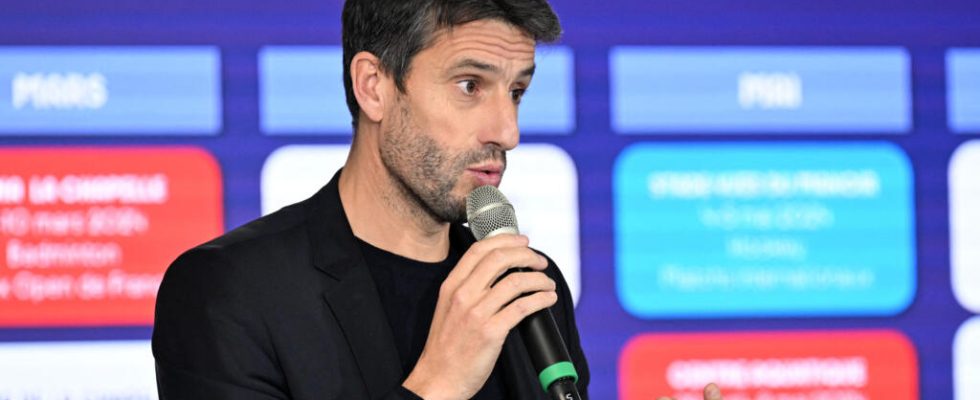The president of the organizing committee for the Paris 2024 Olympic Games, Tony Estanguet, is the target of an investigation into the conditions of his remuneration, Agence France-Presse learned this Tuesday, February 6. The investigation was entrusted to the Parisian judicial police “ last week », According to a source close to the matter.
4 mins
New controversy six months before the Paris Olympic Games. Tony Estanguet, the president of the organizing committee and former canoe champion, is at the heart of an investigation into his remuneration at the head of the body, AFP revealed on February 6.
Estanguet received annual remuneration of 270,000 euros gross until 2020, according to figures communicated by the COJO in 2018. This remuneration was then likely to change within a limit of 20%, depending on certain performance criteria. “ The amount of remuneration has not changed since », assured the deputy general director of the COJO, Mickaël Aloiso.
Contacted, the national financial prosecutor’s office indicated that it did not wish ” communicate at this stage on the existence of a possible preliminary investigation relating to the remuneration of Tony Estanguet “.
Estanguet remunerated under the “ self employed »
Asked by AFP, the authority expressed its astonishment at the announcement of the opening of the investigation and declared that “ the framework for the remuneration of the president of the organizing committee ” was ” very strictly supervised “. She also recalled that her boss was not an employee of the COJO, a 1901 law type association financed 96% by private funds and which benefits from an exemption, the lucrative nature having been ” confirmed by a tax ruling “. This status implies that its leaders are “not not submitted » to a salary ceiling, she added.
The fact that Tony Estanguet is not an employee of the organizing committee results from his position and his mandate as president, according to the COJO. “ We wanted him to be an employee at the time of the creation of the COJO but, after requesting Urssaf, it appeared that this was not possible. », summarized the deputy general manager Mickaël Aloiso.
“ Having an employment contract would have created a relationship of subordination with someone above him which does not make legal sense », Specified Blandine Sorbe, former magistrate at the Court of Auditors and deputy director at the COJO. “ We had discussions with the social administration and the general and financial controller who represents the Ministry of Finance within the association (…) ”, exchanges which led to the solution of the regime “ self-employed “. Tony Estanguet, via a company he created, therefore receives his remuneration in the form of non-commercial profits.
An atypical financial arrangement
The COJO also argues that the remuneration of the former athlete “ was decided and validated by the first board of directors of the organizing committee on March 2, 2018, which ruled in its absence, sovereignly and independently “. The amount was decided on the proposal of a “ remuneration committee ” compound ” independent experts responsible for ensuring the relevance of our remuneration policy “, he added.
THE ” payment terms » of Tony Estanguet’s remuneration “were validated by the general economic and financial controller, after consultation with Urssaf », further underlined the organizing committee. “ The amount of invoices inherent to this remuneration is subject to an annual audit. »by a “internal audit unit independent of the executive of the organizing committee » as well as “an examination by the remuneration committee », insisted the body, arguing that this approach did not correspond “no legal obligation » but replied “to a desire for transparency “.
At the start of 2021, two reports from the French Anti-Corruption Agency (AFA) on the organization of the Olympic Games noted “ risks of breaches of probity » and “conflicts of interest “. In one of these reports, the AFA mentioned the case of Tony Estanguet’s company, pointing out a “atypical assembly within the framework of an association under the 1901 law ”, which “is not without its difficulties », recalled a recent article in Le Canard Enchaîné.
The organization of the Paris Olympic and Paralympic Games is already the subject of three other separate financial investigations, in particular for suspicions of favoritism and misappropriation of public funds during the award of contracts.
(With AFP)
